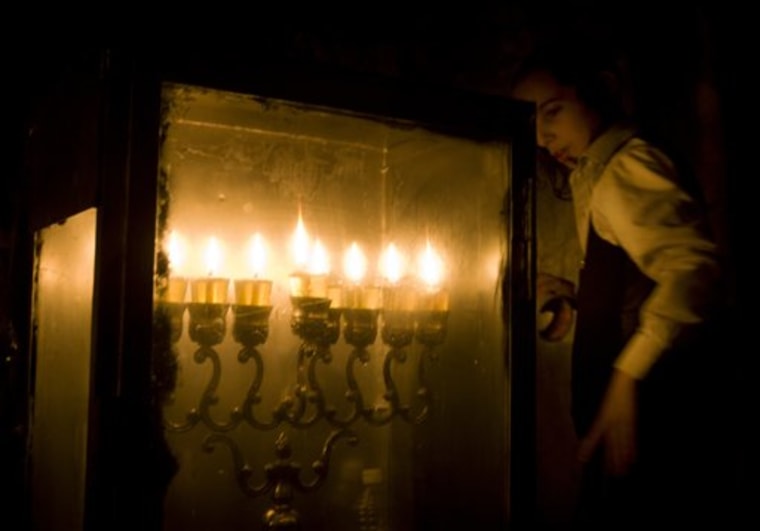If the Mideast peace process is not dead, it is at least gasping for air.
As Washington searches for a new approach to get the Israelis and Palestinians back to the negotiating table, it has become clear the path to peace that President Barack Obama has pursued from the outset of his administration has ended in failure. As have previous U.S. efforts.
The Israelis have consistently rejected Obama's key demand: Stop all construction in Jewish settlements on land the Palestinians want for their own independent state. The administration this week let it be known it has given up on that approach. The standoff has left Palestinian leaders with grave doubts that Obama has what it takes to push both sides to a final peace settlement.
"The odds confronting any administration would be great, but the administration had harder odds because they defined an impossible objective - a comprehensive settlement freeze," said Aaron David Miller, a former U.S. Mideast peacemaker who is now at the Woodrow Wilson Center think tank.
"So 20 months in, the administration finds itself with no freeze, no negotiations and little prospects of an agreement," he said.
Few are suggesting Obama has given up on peace, but there is growing worry that frustration in the region over the latest setback could trigger a new outbreak of violence between Israelis and Palestinians.
The Palestinians are suggesting they may try to establish a state without Israel's agreement. Argentina and Brazil have recognized "Palestine" in recent days, but the U.S. has opposed this approach, arguing that the only way to get an enduring peace is to negotiate terms for a sovereign Palestinian state aside a secure Israel.
This, they argue, could lead to broader Mideast stability.
The breakdown of Obama's effort comes as the administration struggles on a number of fronts at home and abroad. There is slow progress in the Afghanistan war, increasing friction with China and the embarrassing deluge of confidential diplomatic cables released by the WikiLeaks website. November's elections at home left Obama facing a new Republican majority in the U.S. House.
In a speech Friday evening, Secretary of State Hillary Rodham Clinton is expected to offer, at least in general terms, a peek at how the administration hopes to get the peace process back on track.
One possibility is renewing indirect talks between the sides, an effort that presumably would be led by former Sen. George Mitchell, the administration's special envoy. In such talks the U.S. might focus mainly on two of the toughest issues: the borders of a future Palestinian state, and security assurances for Israel once it ends its occupation of the West Bank.
State Department spokesman P.J. Crowley said Wednesday that Mitchell plans to return to the Middle East next week for consultations with both parties and others in the region. And another official, speaking on condition of anonymity in order to discuss a private contact, said Clinton talked by telephone Wednesday with Palestinian President Mahmoud Abbas.
Another possibility is that the administration will lay out its own vision of what a final settlement should look like. Until now Obama has insisted that Israelis and Palestinians craft their own deal, with the U.S. in a support role.
Whatever the next step, it appears unlikely Obama will simply walk away from the peace effort.
Crowley said the administration still believes it can reach at least the outline of a final peace settlement by September — a goal Obama announced when he brought leaders of both parties to Washington three months ago.
"If you think this means the Obama administration doesn't care about promoting Arab-Israeli peace any more, I think that's a deep misreading of what's going on," said Jon B. Alterman, director of the Middle East program at the Center for Strategic and International Studies.
Israeli and Palestinian negotiators may visit Washington next week for consultations, but they apparently will not be talking about the issue Obama insisted be worked out as a condition for direction negotiations: a full stop to Israeli settlement construction in the West Bank and east Jerusalem. The U.S. has conceded that halt isn't about to happen.
Under U.S. pressure, Netanyahu last year did agree to a 10-month slowdown on settlement construction. However, it took Obama nine more months to persuade the Palestinians to open peace talks.
By the time negotiations got under way in early September, the Israeli settlement freeze was set to expire. Three weeks later talks collapsed, and the U.S. had no apparent plan in place either to persuade Israel to extend the settlement freeze or to prevent the Palestinians from walking out.
In November, Netanyahu received from Clinton a list of guarantees, including 20 next-generation stealth fighter planes and U.S. pledges to veto anti-Israel resolutions at the United Nations, according to Israeli officials. In exchange, Israel was asked to renew the expired limits on settlement construction.
Days later, the deal snagged after members of Netanyahu's Cabinet demanded a written pledge from the U.S. that the moratorium would exclude east Jerusalem. Such a pledge never materialized.
"One of the important questions is: Does this convey the president's weakness in being unable to move the Israelis even on something relatively modest? Or does it show the president's toughness — that if the Israelis won't take a deal the president will take it off the table," Alterman said.
"We're going to have to see what the follow-up is. This strikes me as being in mid-pirouette."
